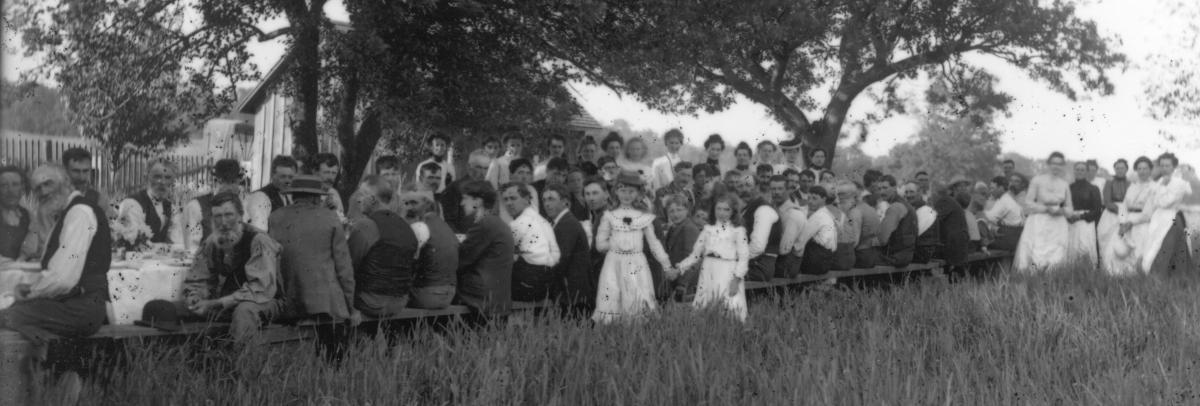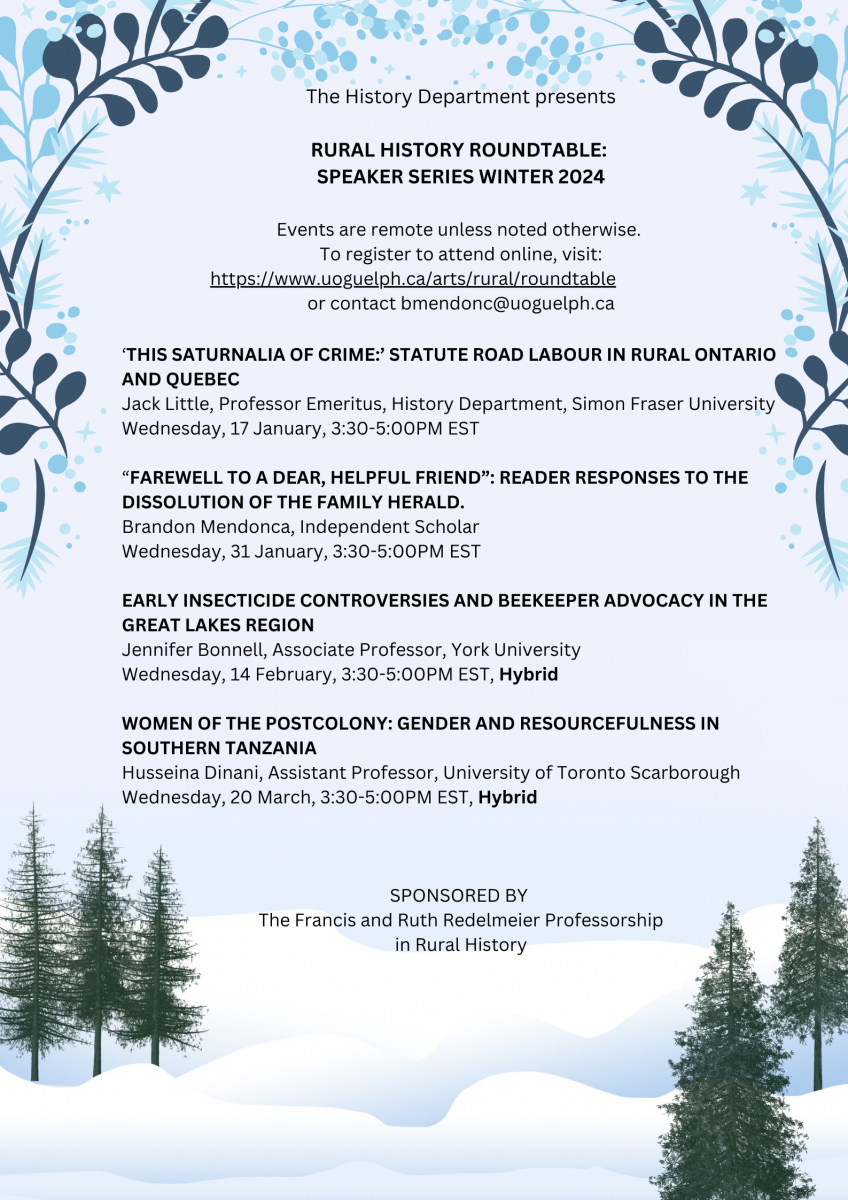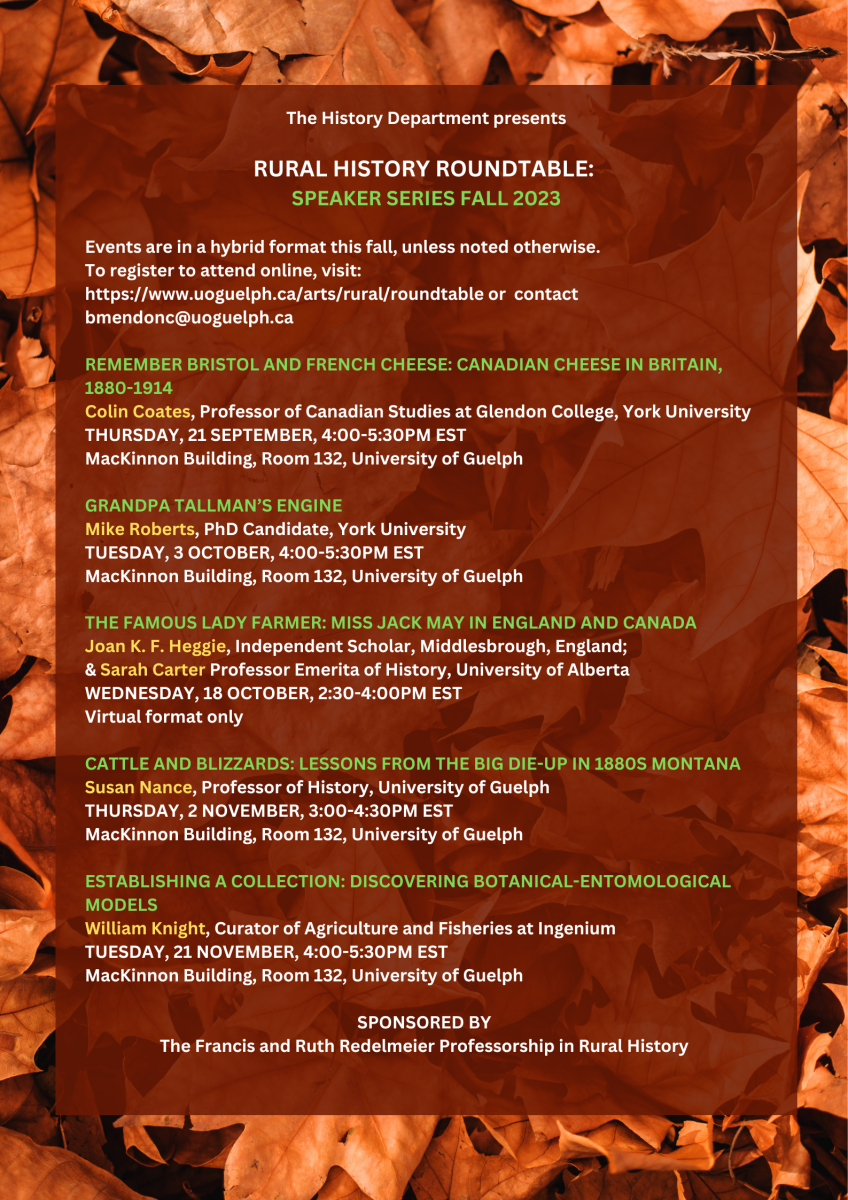Rural History Roundtable

Photograph: Large group eating meal after raising barn, Stephen Sylvester Main collection, University of Guelph Library, Archives, and Special Collections, Agricultural History (XA1 MS A230 #214)
The Rural History Roundtable is a speaker series that has been in operation since 2002. It hosts scholars of international repute and provides a venue for graduate students to present their latest research. It is vertically intergrated drawing into its fold undergraduates, graduates, post-docs, faculty, archivists, alumni, and other members of the public.
All are welcome to attend!
The first presentation of Winter 2026 will take place Thursday, January 22 from 3:30-5:00pm EST in the MacKinnon Building Room 132 at the University of Guelph (weather permitting). It will be a hybrid event and if you wish to view the presentation on Zoom, please register here: https://www.eventbrite.ca/e/tacit-terrains-tacit-knowledge-development-i....
Presenter: Carelle Sarkis (History Ph.D. student, McMaster University)
Title: "Tacit Terrains: A Look at Tacit Knowledge Development in Ontario Dairy Farmers"
Description: This presentation examines the influence of emerging technologies in the Canadian dairy industry on the development and transformation of tacit knowledge in the handlers working within these systems. As the industry has integrated more precision technologies in the post-1970 period, certain forms of tacit knowledge have become obsolete while others have been reconfigured. This talk explores how these systems have changed the modes of human-animal interaction, as well as their impact on the ways tacit knowledge manifests in both the handlers and animals who interact with them.
Questions? Please contact:
Dr. Ben Bradley
ben.bradley@uoguelph.ca
Dr. Rebecca Beausaert
rbeausae@uoguelph.ca




For a list of past Rural History Roundtable speakers, see here.